SENDAS welcomed presidents, deans and academic administrators from institutions on the Mesoamerica Region for their biennial retreat the week of October 8-13, 2018. The registrars also came to hold simultaneous training. Each day these leaders spent time in fellowship with devotional thoughts led by Dr. Samuel Perez, pastor and leader from Puerto Rico.
The first part of the week was spent with Rev. Marty Hoskins, who assisted the group in a time of training using Gallup’s StrengthsFinder Assessment tool. The StrengthsFinder tool has been used for more than 10 years in the Church of the Nazarene to identify and develop the specific strengths – or themes – that each person contributes to the efficiency of a team. Both levels 101 and 201 were successfully completed.
During the latter half of the week, presidents and administrators participated through giving their institutional updates as well as receiving valuable insight from denominational leaders, Dr. Carlos Saenz, Mesoamerica regional director and Dr. Dan Copp, IBOE Commissioner with respect to the future of theological education in the Church of the Nazarene. Regional institutional leaders, Dr. Orlando Seale (president of CNC), Rev. Ulises Solis (president of STN Guatemala), Rev. Libni Othoniel Rivera (academic dean of STN Guatemala), Dr. Marco Velasco (academic dean of SENDAS), and Rev. Gabriel Yip (academic dean of SENAMEX). SENDAS administrators Rev. Guido Solano and Rev. Andres Fernandez, also led training on the Canvas platform used as part of Virtual Nazarene Seminary.
Dr. Ruben Fernandez comments, “We are grateful to God for the opportunity he gave us this year to host the Presidents and Deans gathering. The entirety of the program -from the devotional time in the morning with Dr. Pérez, to the last conference of each day- was outstanding. In particular, I would like to thank Global Missions for sending us Rev. Marty Hoskins. Personally, I had been trained in the Gallup StrengthsFinder system in the past and wanted my colleagues to have the opportunity to learn more about it. The SENDAS team also benefited by this training, and we are already beginning to speak in the language of our personal strengths and talents.”
